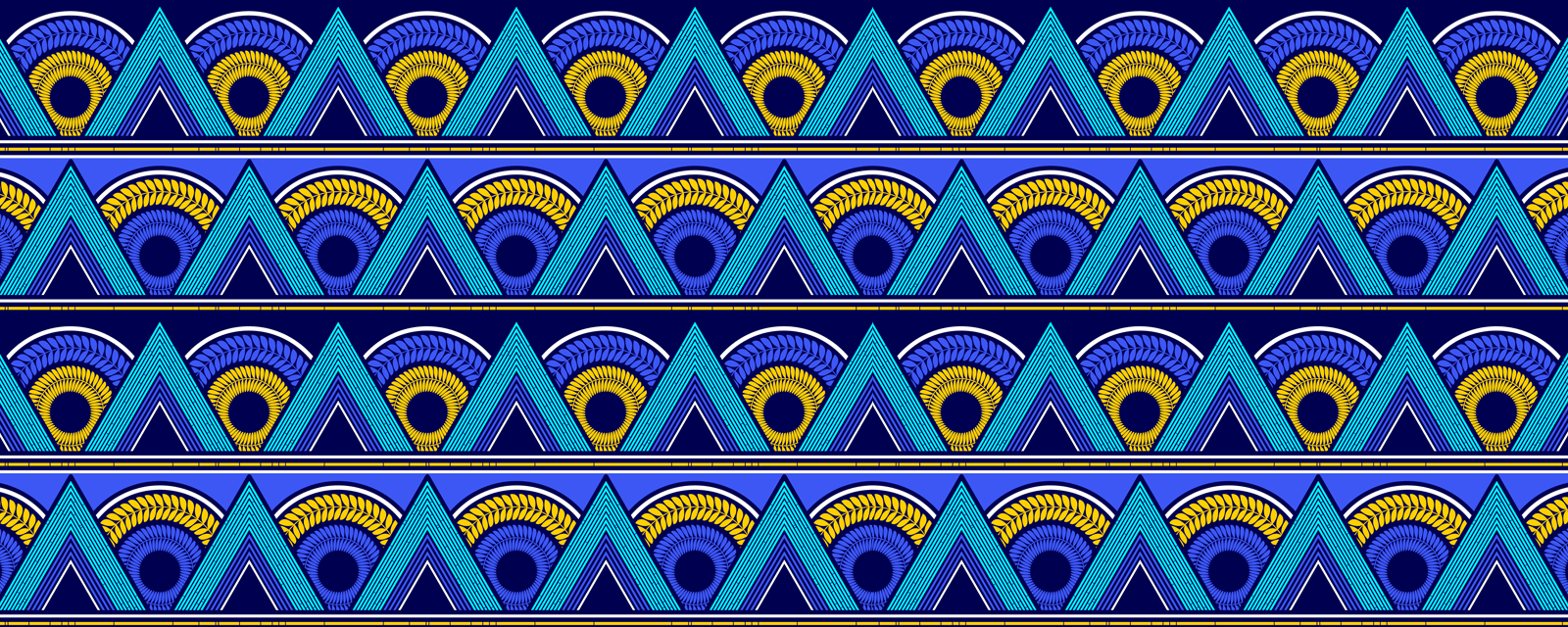A new poem by Amore David Olamide that contemplates the meanings of Ọ̀yẹ̀kú Méjì, one of the integral verses of the Yorùbá religious corpus Odù Ifá.
The Ifá compilation opens with a chapter called Èjì Ogbè that explores the themes of light and becoming one with the world. In stark contrast the next odù, Ọ̀yẹ̀kú Méjì, addresses the darker aspects of life and suggests that good can come from bad, no matter how unlikely it may seem at the time.
Ọ̀yẹ̀kú is an elision of the phrase Ọ̀ yẹ̀yẹ̀ Ikú meaning, ‘Spirit of the Mother of Death’. In Ifá divination this odù can be interpreted as warning of physical death, but is more commonly thought of as signifying the end of a cycle, or the completion of a process.
In the following poem, the poet describes the path of an individual who, in order to avert death, adheres to several spiritual preconditions advised by Ifá.
The death that will kill a seasoned swimmer
Will rather make the hyacinth suffer horribly
The catastrophe that will dwindle the ìrókò tree,
Will rather take the inscrutable vulture.
The death that will court Alukóso ayé (1)
Will rather capture the ill-fated village
Korojíjí divined Ifá for the averter of death (2)
When he was going on an unsought expedition.
He was asked to make sacrifice
So that he would not encounter death there:
He offered three he-goats, three cocks, and six thousand lambs.
To the pinnacle of the earth’s possessor.
He sacrificed twenty pigeons too
To his earthly mothers
Those who tie 200 hundred loincloths
That aren’t long enough to hold the knees.
They say has become as fearsome as the sword
For he has recited the Ọ̀yẹ̀kú verse (3)
The song of the inhabitants of Appá (4)
The verse divined for Inisebayiku (5)
One who endured numerous of catastrophes
Following the homage to Èrigiàlo. (6)
They say he has become the intrepid man
One who sits on a Crescentia tree
For he knows the core name of Imalẹ̀
And three mystic calabash in the dense forest of Yemetù.
They say if tomorrow arrives,
For you, it will still be tomorrow.
Because the initiate has an infinite tomorrow in the epoch of time.
Àfọ̀la àfọ̀la ni ikú awo -
‘The occult will remain timeless like the lunar moon’.
by Amore David Olamide
Footnotes
- Alukóso ayé: aka Alukandi ‘He who travels back and forth bringing news’ an ìrúnmọlẹ (a divine being that descends to earth to teach mankind) who appears in the Ifá odù Òtúrá Méjì. He is appointed to be Olódùmarè’s overseer of human affairs, to report back on what was going on across the earth. Alukóso ayé becomes bitter and confused about the destructive behaviour of humans, his hatred leads him to attempt to wipe out mankind until Èṣù strips him of his powers and he is returned to where he came from.
- Korojíjí: A character from one of the Ifá verses who performs divination for the hunter Obge, advising him to make a sacrifice before leaving on his hunting expedition. The hunter Obge ignores this advice, but becomes trapped in the anus of an elephant. He is only able to free himself after his people have performed the relevant sacrifice.
- The Ọ̀yẹ̀kú verse: The Ifá odù, Ọ̀yẹ̀kú Méjì, is also known as the ‘Averter of Death’ and some practitioners will chant it as an invocation of spiritual protection.
- Appá: A town refered to in the Ọ̀yẹ̀kú Méjì. All the clients of a particular Ifa diviner in Appá city are said to live to an old age due to the wise advice he provides.
- Inisebayiku: An individual who appears in the Ọ̀yẹ̀kú Méjì. Inisebayiku experiences much hardship and misfortune but after consulting Ifa and receiving guidance from divination he makes sacrifice and his luck changes. The Ifá verses that are contained in Ọ̀yẹ̀kú Méjì suggest that the person who is asking for guidance will experience adversity, but if they can tolerate discomfort without acting in destructive ways, then they will be able to overcome these trials.
- Èrigiàlo: A praise name for Ọ̀rúnmìlà, the Yorùbá god who is said to have brought the wisdom of Ifá to mankind.

